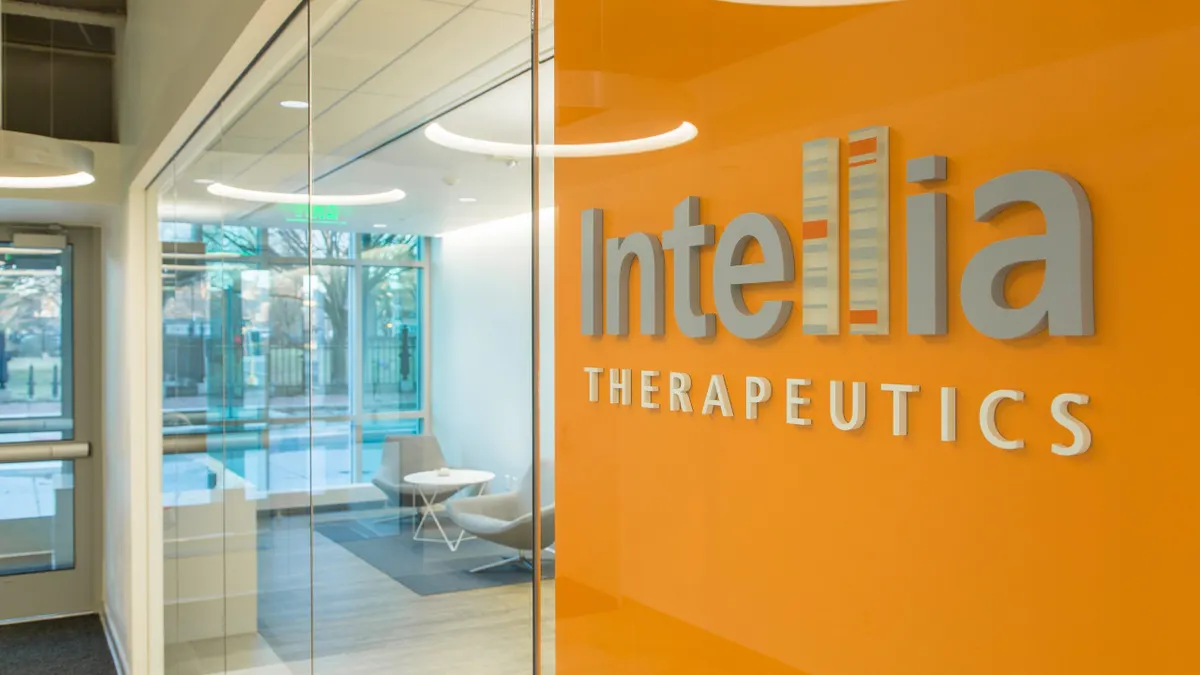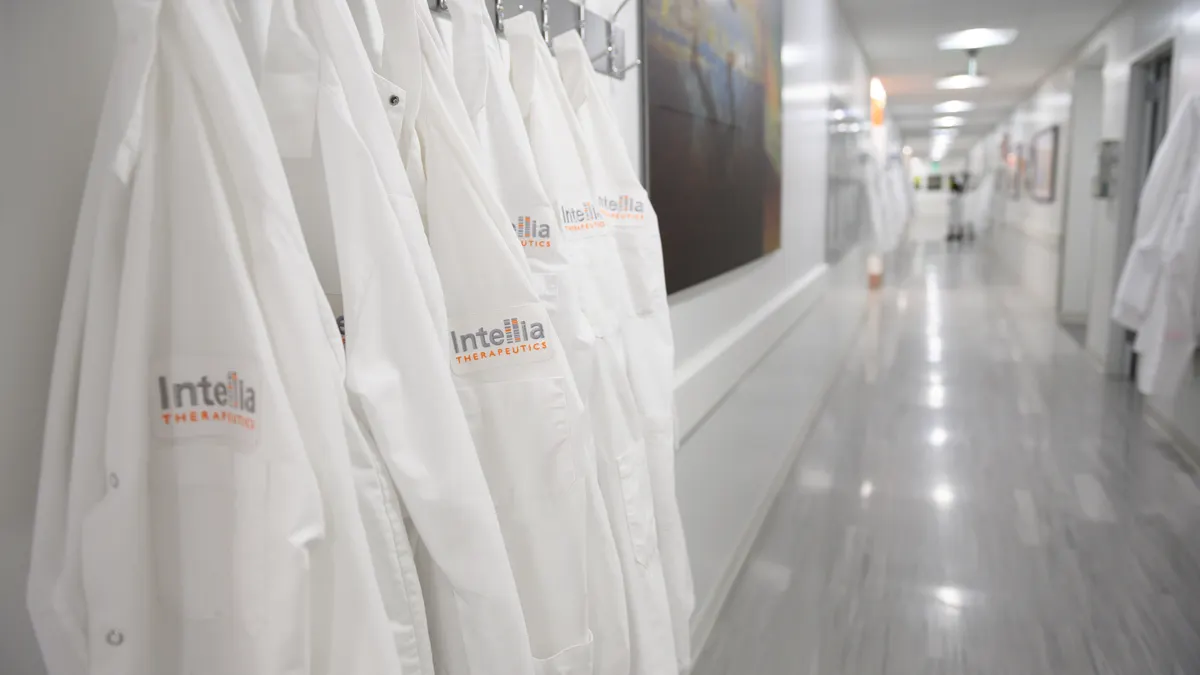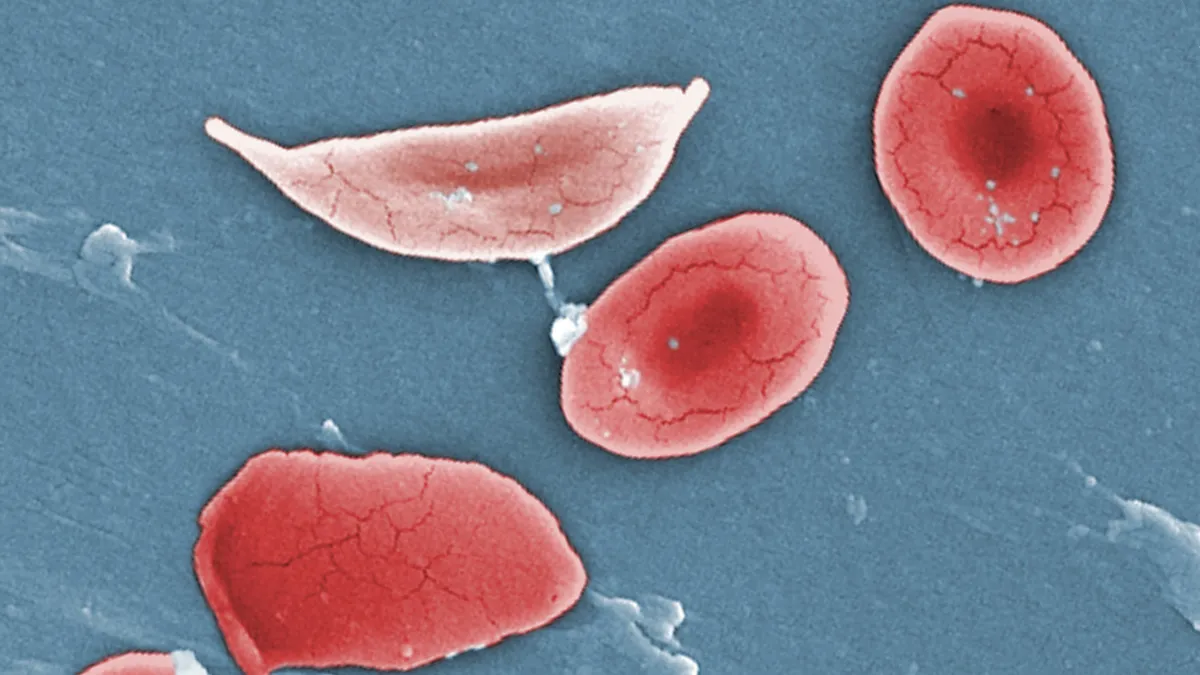Dive Brief:
- Intellia Therapeutics shares dropped 25% early Thursday after the gene-editing company disclosed that one patient in an ongoing Phase 3 trial had signs of liver stress.
- Lab tests showed the patient had grade 4 liver transaminase elevations that “appear to be resolving” without hospitalization or medical treatment and have since fallen to less dangerous levels, Intellia said in a filing with the Securities and Exchange Commission late Wednesday. “We continue to monitor these events as the Magnitude study progresses,” the company said.
- The Magnitude trial is testing Intellia’s experimental therapy in a type of deadly heart condition known as transthyretin amyloidosis with cardiomyopathy, or ATTR-CM. Intellia has already recruited 365 patients and plans to enroll a total of 765 by early 2027. Though the study is blinded, it’s likely that the patient with the potentially serious liver signals received treatment with Intellia’s therapy, analysts said.
Dive Insight:
The dramatic stock reaction illustrates the jitters among investors over genetic medicines that hold tremendous promise but also come with a raft of uncertainties.
Intellia’s somewhat messy disclosure process on Wednesday didn’t help. The company filed an 8-K after initially sharing the information during investor meetings. As after-market trading punished the stock, executives then held a conference call with analysts, many of whom said they were reassured that the patient was asymptomatic and timelines for the trial remained intact.
But investors appear less forgiving. A tough funding climate has already hampered Intellia and other companies focused on the potentially revolutionary gene editing technology known as CRISPR. In both January 2024 and January 2025, Intellia laid off staff and restructured research.
Safety concerns are also high on the minds of investors after Rocket Pharmaceuticals said this week that a patient who received its experimental gene therapy died following treatment. And the very idea of a one-time, permanent gene-altering therapy could be off-putting to patients who have other options to treat specific diseases.
In the case of Intellia, several other treatments are available to treat ATTR-CM. Two new options, from Alnylam Pharmaceuticals and BridgeBio Pharma, have received Food and Drug Administration approval since November. To win over doctors and patients, Intellia will need to have persuasive data from its research on nexiguran ziclumeran, also known as “nex-z.”
“Safety will be a consideration moving forward,” William Blair analyst Myles Minter said in a note to clients after the call with management. Still, “we continue to see nex-z’s TTR knockdown profile as impressive,” he said, referring to the treatment’s ability to halt production of the protein implicated in the disease.
William Blair has an “outperform” rating on the stock.

































